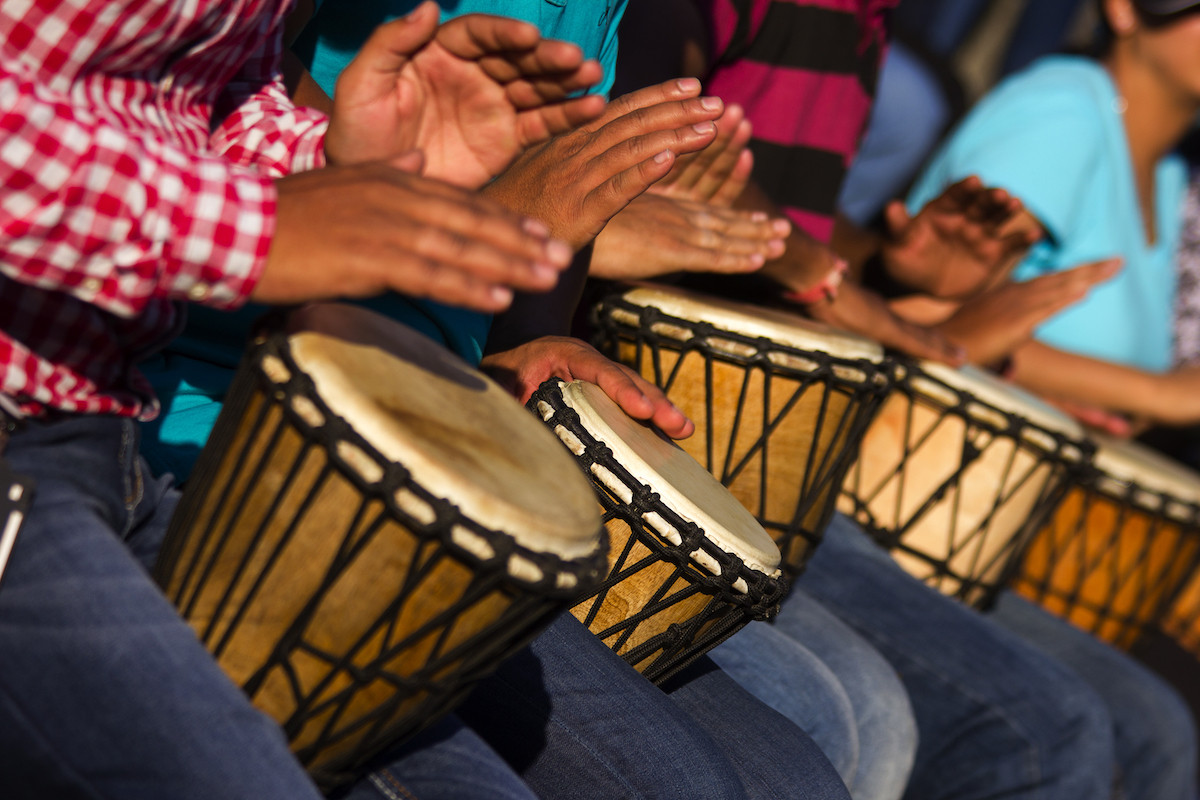Popular Reads
Top Results
Can't find what you're looking for?
View all search resultsPopular Reads
Top Results
Can't find what you're looking for?
View all search resultsHundreds of djembe drum producers in Blitar stop production because of COVID-19 outbreak
Djembe drums, a traditional African musical instrument made of wood and sheep or goat hide, have been a popular product for craftsmen in Blitar since 2015, due to a surge in demand from China.
Change text size
Gift Premium Articles
to Anyone
H
undreds of djembe drum makers in Blitar, East Java, who depend mainly on the Chinese market, have been severely hit by the novel coronavirus (COVID-19) outbreak in that country.
"On Jan. 28, my buyer in China ordered nine containers but he canceled it only three days later," Sugeng Harianto, 37, a djembe drum maker from Sentul subdistrict, Kepanjenkidul district, told The Jakarta Post on Saturday.
Djembe drums, a traditional African musical instrument made of wood and sheep or goat hide, have been a popular product for craftsmen in Blitar since 2015, due to a surge in demand from China.
Sugeng said his Chinese buyer had not contacted him since the cancelation, leaving him in confusion as to how he would earn money to pay monthly installments for the loans he has taken out for the business.
He now has at least 1,000 unfinished djembe drums in his warehouse as a result of the cancelation.
Sugeng is one of dozens of djembe drum producers in Blitar who run medium-sized workshops with an average production capacity of 13,500 drums a month. There are a few other drum producers with a larger production capacity, but most are home industry-scale businesses.
Hundreds of other djembe drum producers in Blitar have faced similar problems since the coronavirus first broke out.
To make matters worse, the drum makers had bought large amounts of raw materials in the beginning of January, since demand from China usually peaked between March and May every year.
Sentul subdistrict has long been known as a handicraft center in Blitar and produces traditional toys and household items made of wood.
In 2005, handicraft makers in Sentul began to produce djembe drums to fulfill demand from Bali. In 2015, a group of buyers from China ordered tens of thousands of djembe drums as a trial order after visiting Sentul. This high demand for djembe drums from Chinese buyers encouraged many more people in Blitar to start getting into the business.
Now, there are djembe drum makers in six districts across Blitar city and Blitar regency, shipping a total of around 200 containers or 600,000 drums to China every year, around 95 percent of their total production capacity.
With an average price of about Rp 75,000 (US$5.46), the annual sale of djembe drums from Blitar to China amounts to around Rp 45 billion. Finer quality drums used by professional musicians sell for around Rp 850,000 apiece.
The djembe drums for the Chinese market are made of mahogany and goat hide and range from 30 centimeters to 65 cm in length.
“A few of us are now trying to turn to the domestic market by producing housewares and traditional toys while waiting for Chinese market to open again," Sugeng said.
Demand from Bali also remains stable, he said, but only for smaller drums that are usually used by furniture exporters as container fillers.
Blitar Culture and Tourism Agency head Tri Iman Prasetyono said the halt in djembe drum production affected thousands of people in Blitar since djembe production had maintained traditional production methods that enabled many people to participate in the production chain.
"Housewives can do some jobs - such as painting, polishing and piecing together the leather - in their own homes,” he said, adding that the traditional production methods, especially in Sentul, had become a tourist attraction.
"But we no longer see the busy neighborhood in Sentul. We used to see the housewives painting those drums on their front porches," he said.
Tri added, however, that he believed the situation would get back to normal in the coming months.










